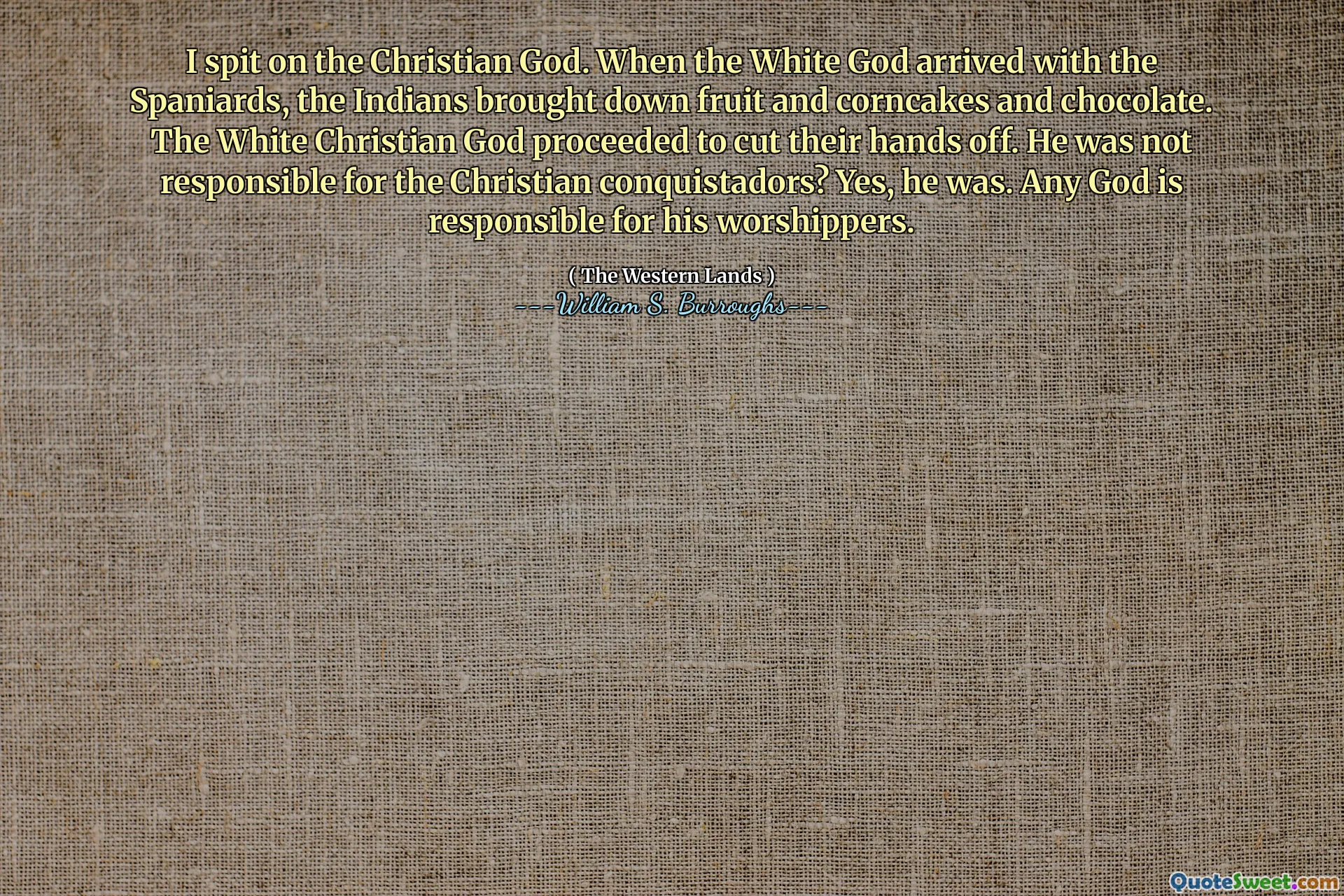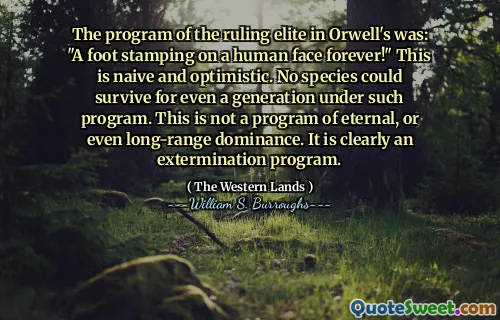
I spit on the Christian God. When the White God arrived with the Spaniards, the Indians brought down fruit and corncakes and chocolate. The White Christian God proceeded to cut their hands off. He was not responsible for the Christian conquistadors? Yes, he was. Any God is responsible for his worshippers.
The quote reflects deep resentment towards the Christian God, condemning the violence inflicted upon indigenous people by Spanish conquistadors. The speaker highlights a historical perspective where instead of compassion, the Christian God was associated with brutality. It challenges the notion that divine figures are exempt from the actions of their followers, arguing instead that any deity bears responsibility for the deeds committed in their name.
This assertion raises critical questions about the intersection of faith and morality, suggesting that divine endorsement cannot absolve individuals from their violent actions. By invoking the imagery of gifts offered by the indigenous people, the speaker contrasts their generosity with the destructive nature of colonizers, marking a stark divide between the sacred and the profane in the context of colonialism.











